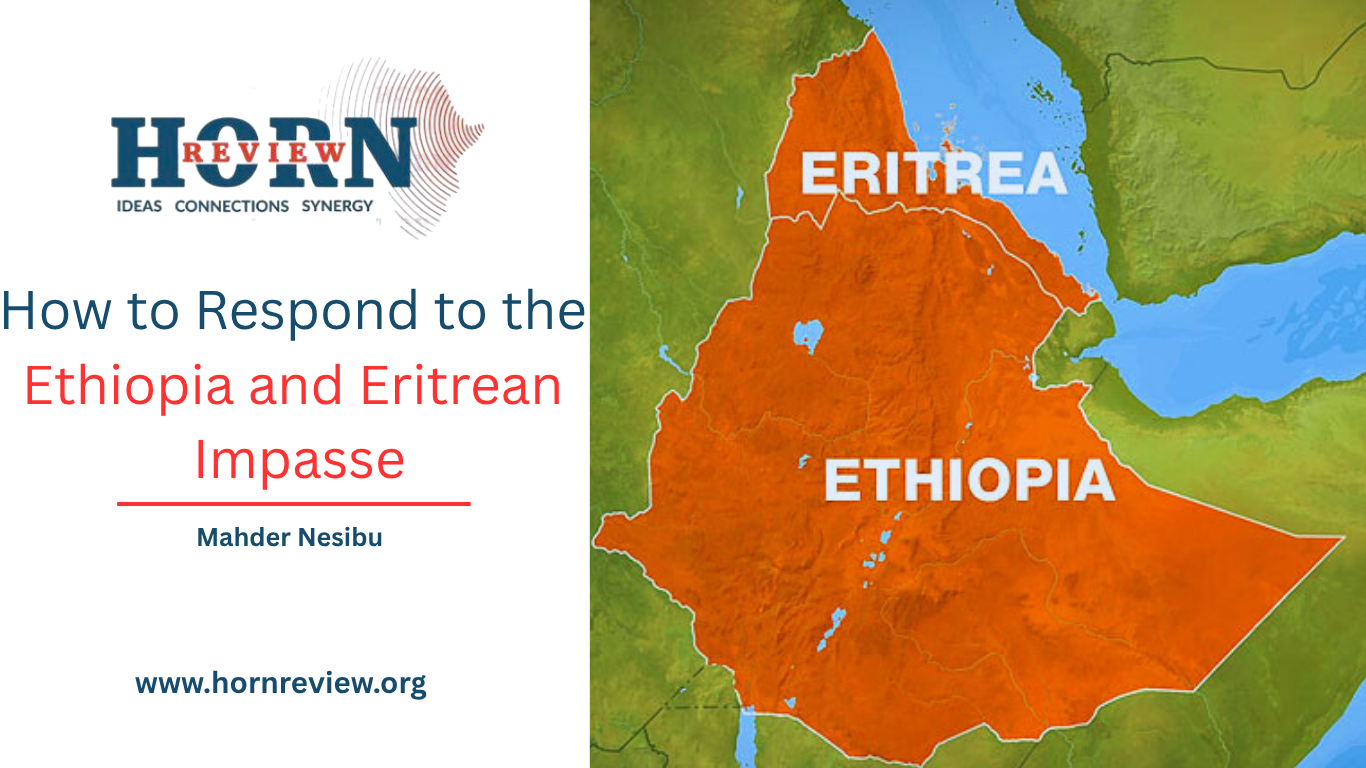
18
Nov
How to Respond to the Ethiopia and Eritrean Impasse
The deepening tension between Ethiopia and Eritrea has become a central concern for many external actors. Speculation about the possibility of open conflict continues to circulate, shaped by competing narratives about the underlying drivers of the current standoff. In a recent address directed primarily at those actors, Ethiopia’s foreign minister, Gedion Timotheos, set out Addis Ababa’s understanding of the situation and described how his government is approaching it. Beyond the historical and structural issues that have long defined relations between the two states, two immediate dynamics stand out. The first concerns Ethiopia’s assertive pursuit of a sovereign outlet to the sea and the accompanying debate over its maritime strategy. The second relates to Eritrea’s approach to Ethiopia and the role that Asmara’s behaviour plays in sustaining or amplifying the tension.
Ethiopia has been blunt about its priorities on the Red Sea question. Senior officials, including the prime minister and the foreign minister, have described maritime access as an existential matter for the country’s future. This has generated varied reactions in the region and beyond. While some observers consider Ethiopia’s rationale understandable, the wider geopolitical environment in the region complicates the picture. The northern periphery of Ethiopia is still adjusting to a fragile post-conflict reality, neighbouring Sudan is mired in a destructive war, the dispute over the Nile between Ethiopia and Egypt remains unresolved, and Somalia’s internal fragility and its relationship with breakaway Somaliland continue to carry regional implications. These overlapping pressures have placed Ethiopia’s maritime aspirations inside a security environment that is prone to rapid escalation.
The second dynamic is Eritrea’s conduct toward Ethiopia. Through a communication to the United Nations earlier this year and now through the recent address, Addis Ababa has outlined what it sees as a pattern of hostile actions by Asmara. Independent evidence points to similar conclusions. Eritrea continues to support armed groups operating inside Ethiopia, cultivate political alliances with actors in Tigray who are at odds with Addis Ababa, and fosters ties with states whose relations with Ethiopia are tense.
Despite this, much of the international framing has struggled to capture the full set of dynamics. The situation is often reduced to a bilateral dispute without the broader context of Eritrea’s regional behaviour or Ethiopia’s internal and external dynamics. Similar oversimplifications have hindered analysis in other regional crises, such as Sudan, where narrow interpretations of the conflict have failed to illuminate the drivers of instability. Such framings are failing to support effective conflict prevention. The foreign minister’s address offers a point of departure for addressing this gap. The first challenge is to understand the nature of the regime in Asmara and its instinctive posture toward regional affairs. As the minister noted, Eritrea’s governing system places a heavy emphasis on confrontation. This is reflected in its domestic governance model, its historical dealings with neighbours, and its long-standing posture toward the international community.
Another challenge is to evaluate Ethiopia’s policies as they are rather than as they are portrayed. Public narratives shaped by misinformation have created impressions of aggressive intent behind Addis Ababa’s maritime claims, obscuring and complicating the distinction between stated objectives and actual conduct. Although Ethiopia frames the port issue in existential terms, there is no evidence of an effort to advance this goal through force. The government continues to insist on dialogue.
This raises the question of how the international community should respond. A constructive approach must centre on the objective of facilitating negotiations between Ethiopia and Eritrea, but it must also incorporate the full scope of Eritrea’s behaviour.
A realistic approach must consider Eritrea’s track record with diplomacy and multilateral institutions. Years of isolation have inflicted considerable damage on its international position, a reality that even the leadership has an interest in addressing. The government’s recent attempts to re-engage with the United States and its unusual efforts to build links with multilateral organisations illustrate this shift. These developments create an opening for external actors, though they also require an accurate reading of President Isaias Afewerki’s comfort with autonomy and his scepticism toward mechanisms of arbitration or consensus. Any engagement must account for these tendencies.
Engagement must be made to rest in a foreign policy recalibration on the part of Asmara. To benefit from cooperation with external partners, Eritrea must demonstrate a willingness to improve relations with its neighbours and participate in dialogue on issues of mutual concern. External actors should make this expectation clear in their diplomatic channels, including embassies and special envoys.
Eritrea’s regional relationships also require scrutiny. Its ties with the Sudanese Armed Forces under General Burhan and its coordination with the government in Cairo remain opaque. These relationships can serve legitimate national interests, yet they often serve to advance positions that complicate Ethiopia’s security environment. Mediators should seek clarity on these engagements and encourage a shift toward more constructive regional diplomacy that supports stability rather than hostility.
The most critical issue concerns Eritrea’s activities inside Ethiopia. The support of armed groups and the deliberate weakening of Ethiopia’s internal security architecture present immediate risks. These activities could provoke a forceful response, which would significantly raise the likelihood of open conflict. Within the framework of international law and the norms upheld by responsible international organisations, Asmara must be urged to cease interference and disengage from strategies that directly threaten stability.
A coherent international strategy will depend on acknowledging all these dynamics. Without that, efforts to reduce tensions risk falling short of the conditions required to prevent escalation and to guide the two countries toward a negotiated outcome that addresses security concerns and preserves regional stability.
By Mahder Nesibu,Researcher, Horn Review

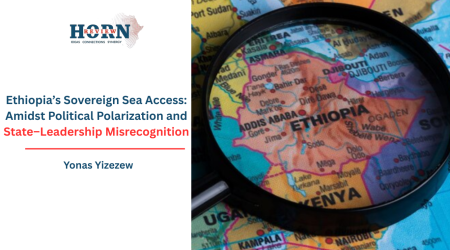
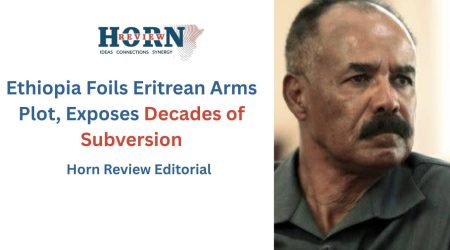
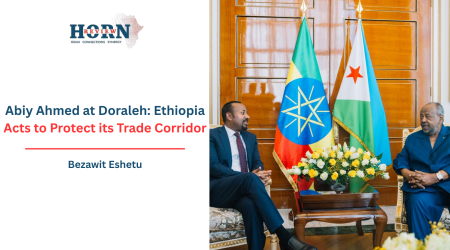
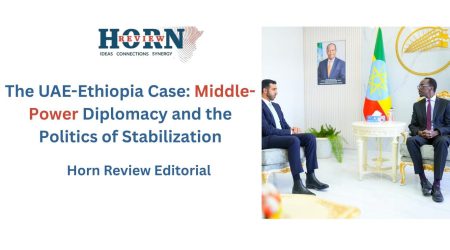
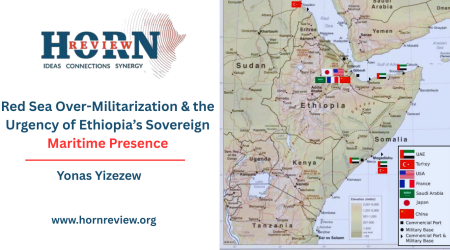
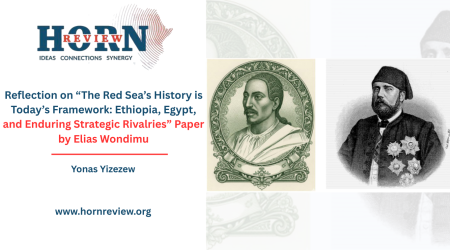
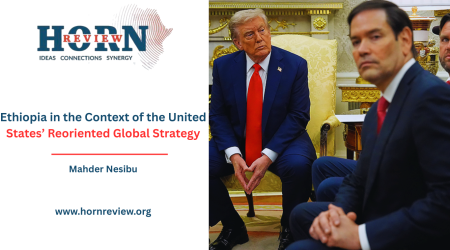
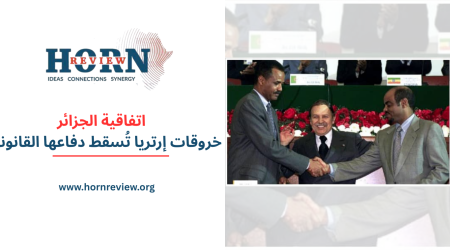

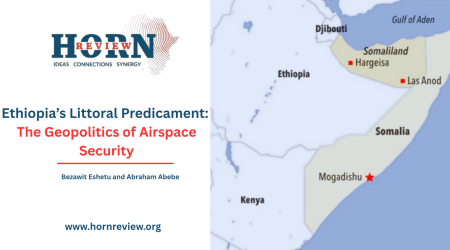
Comments (2)
Shaebia’s true nature and behavior have never been very well known to the wider international community for a long. Often, it benefited from the sympathy often given to being a small state against an expanding large Ethiopia. Shaebia plays a spoiler role and serve as an appendage to Egyptian destabilizing role over Ethiopia. Your article is a bold step to clarify Shaebia’s true colors. I appreciate the high standard quality analysis of developments presented in the Horn Review.
Shaebia’s true nature and behavior have never been very well known to the wider international community for a long. Often, it benefited from the sympathy often given to being a small state against an expanding larger Ethiopia. Shaebia plays a spoiler role and serve as an appendage to Egyptian destabilizing role over Ethiopia. Your article is a bold step to clarify Shaebia’s true colors. I appreciate the high standard quality analysis of the developments presented in the Horn Review.